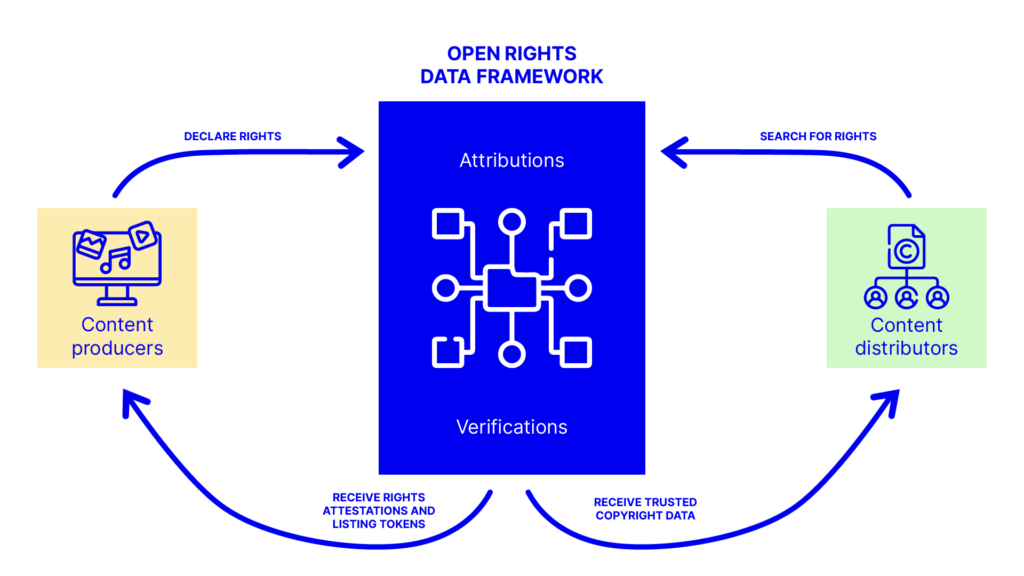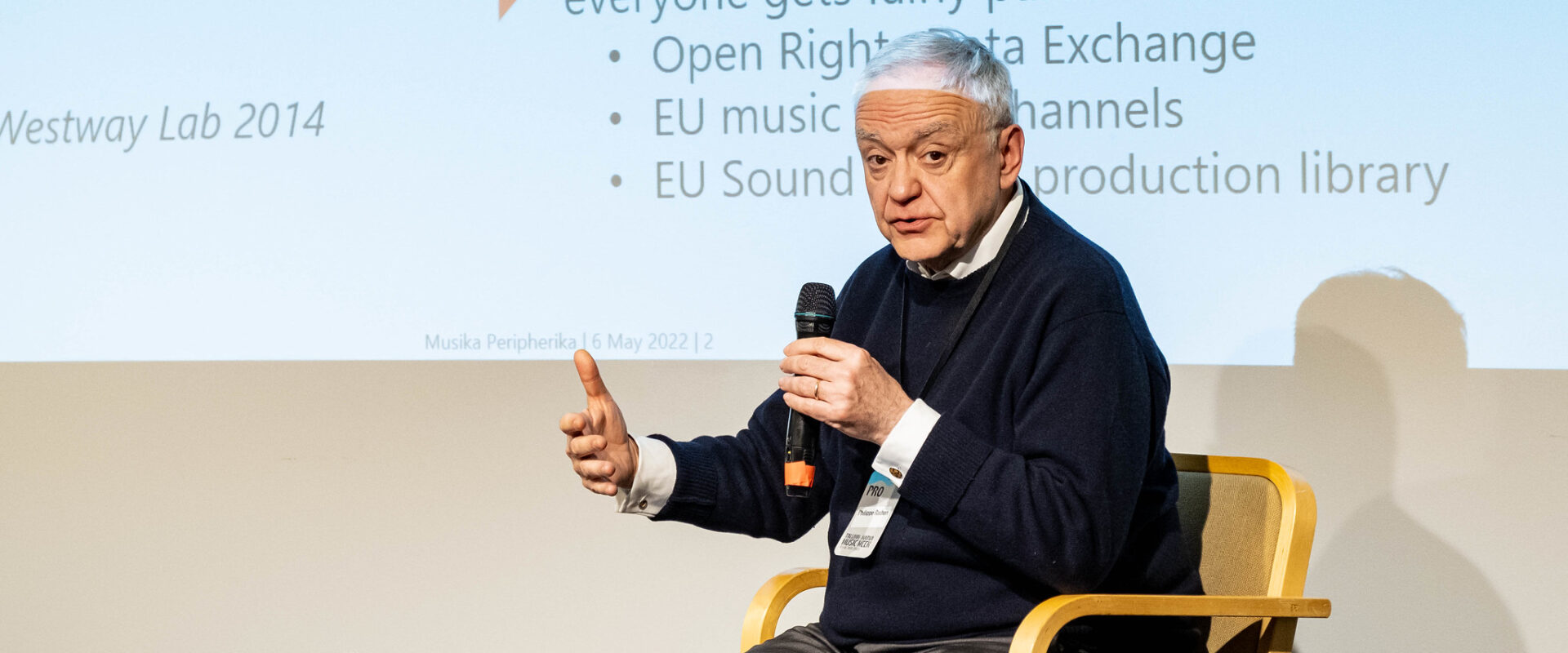Problem
Rights and royalty management systems are complicated, imprecise, slow, and expensive. Creators upload original content on a multitude of online platforms but are not systematically remunerated for their work. New legislations make the platforms responsible, but the latter often lack the necessary information to fulfil their duties. More specifically, as of June 2022, Estonian authors and performers will have to be informed at least once a year of the use made of their works and performances, the revenue generated by their use, and the remuneration received on their behalf. When music has been streamed, both songwriters and performers must be paid.
However, data is often incomplete, outdated, or unreliable and does not flow. It takes a few minutes for a new European song to be streamed in Brazil, then 9 months on average for the recording to be paid and 18 months on average for the songwriting to be remunerated in Europe in the 21st century! The Brazilian collective organisation will take time to connect with the European collective organisation that will take time to connect with the European rights holders.

Our solution
In collaboration with the Estonian music sector, we built a system enabling identified artists and managers to declare rights related to identified songs and recordings, and forward their music and licensing data to a streaming service. The aggregation of data related to recordings and songs ensures everyone can get paid fairly and swiftly.
Together with the policymakers in the Estonian public sector, we defined the benefits, governance, and sustainability of the solution to offer real-time and affordable access to a reliable, exhaustive, current, interoperable rights data system.
Impact
As a result of our experiment and partnerships, we continue to collaborate with early adopters from various sectors and jurisdictions. We will offer a data management and intermediation service to exchange trusted rights data between parties.
Our platform will facilitate the interconnection of existing systems and the discoverability of rights data – the data that tells you who did what, who owns what, and what you can do with that. Our solution will strengthen data ownership and give creators and producers a better control on their rights. We are already in partnership with the public sector policy makers in Estonia and soon we will expand our targeted customer base.
Future plans
On one side, fair trade needs trusted rights data, and on the other side it’s a great opportunity for Estonia to become an important data hub. We want to attract rights-holders and rights-users to shadow our work, and funders to finance our developments through grants or investments.
We just launched the project Musika Peripherika with eight international partners and the support of the Creative Europe Programme to develop new remuneration models for the independent music and audio-visual sectors.
Within a year, we will have ported our system onto a secure, scalable, and distributed infrastructure and helped a couple of major rights-holders declare and manage the rights in their catalogues through our solution.

Philippe Rixhon
EXPERIMENT LEADER


